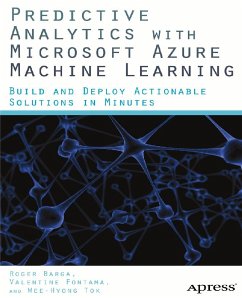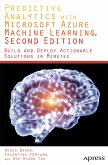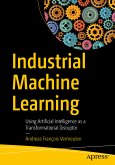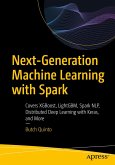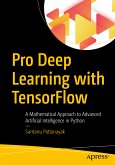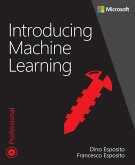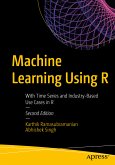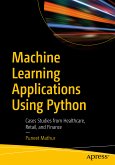The purpose of this book is to provide a gentle and instructionally organized introduction to the field of data science and machine learning, with a focus on building and deploying predictive models.
The book also provides a thorough overview of the Microsoft Azure Machine Learning service using task oriented descriptions and concrete end-to-end examples, sufficient to ensure the reader can immediately begin using this important new service. It describes all aspects of the service from data ingress to applying machine learning and evaluating the resulting model, to deploying the resulting model as a machine learning web service. Finally, this book attempts to have minimal dependencies, so that you can fairly easily pick and choose chapters to read. When dependencies do exist, they are listed at the start and end of the chapter.
The simplicity of this new service from Microsoft will help to take Data Science and Machine Learning to a much broader audience than existing products in this space. Learn how you can quickly build and deploy sophisticated predictive models as machine learning web services with the new Azure Machine Learning service from Microsoft.
Dieser Download kann aus rechtlichen Gründen nur mit Rechnungsadresse in A, B, BG, CY, CZ, D, DK, EW, E, FIN, F, GR, HR, H, IRL, I, LT, L, LR, M, NL, PL, P, R, S, SLO, SK ausgeliefert werden.
Hinweis: Dieser Artikel kann nur an eine deutsche Lieferadresse ausgeliefert werden.

